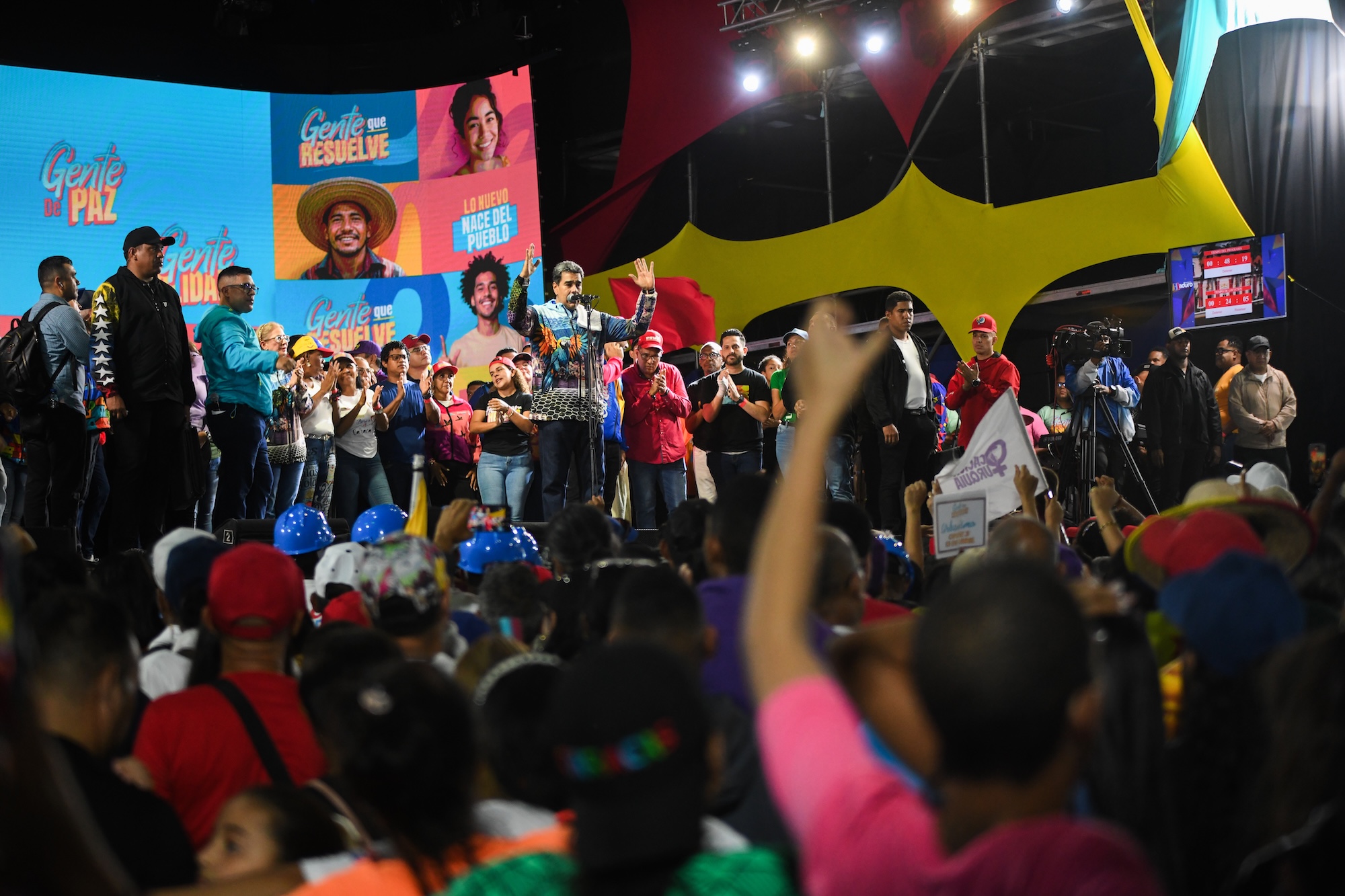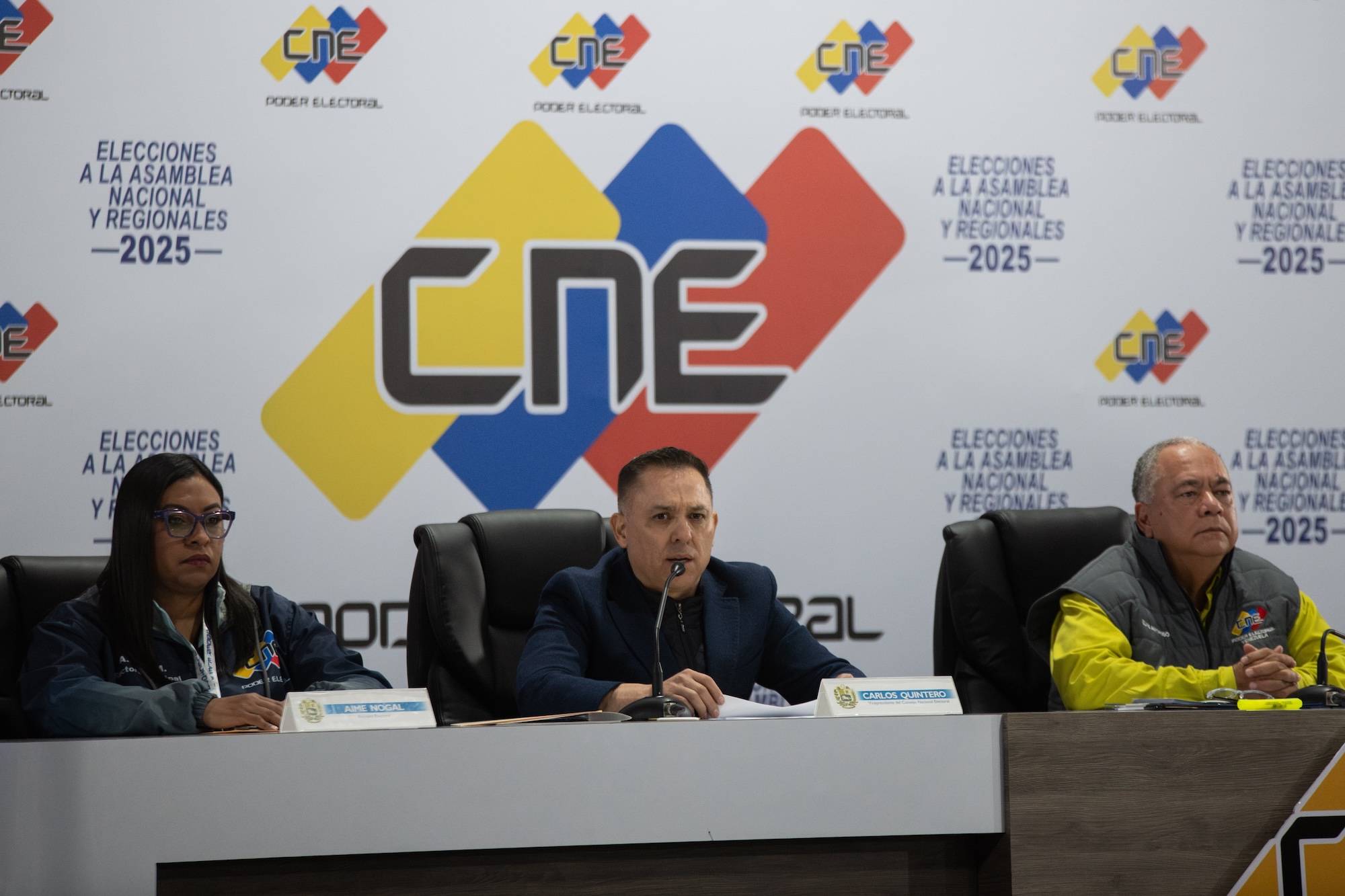Elections in Venezuela: triumph of abstention or defeat of the opposition?
Marcos Salgado
Venezuela returned to vote less than a year before the 2024 presidential elections. In a single day, 24 state governors and 285 members of the National Assembly, the unicameral parliament, were elected. In both elections Chavismo won by a very wide margin, obtaining 23 of the 24 governorships and 90 percent of the seats in the National Assembly.
“It is a gigantic victory, anything they say to hide this victory, is a delirious act”, said the president of the National Assembly and reelected deputy, Jorge Rodríguez, during President Nicolás Maduro’s Monday program. Rodríguez (usual head of electoral campaigns of chavismo) indicated that the ruling party obtained 1 million 300 thousand votes more than in the previous regional elections, in 2021.
In the regional elections of November 21, 2021, the United Socialist Party of Venezuela and its allies obtained slightly more than 3 million 700 thousand votes. Four years later, the sum of votes for its gubernatorial candidates bordered 5 million. “To those who have said that yesterday abstention prevailed, I say that we obtained 1 million 300 thousand votes more than in the election of 2021”, indicated Rodriguez.
The hard numbers of these elections are also a blow to the computations invented by the opposition in last year’s elections, when with the help of hegemonic media and some “progressive” presidents they imposed the story of a victory difficult to believe in real life and a debacle of Chavism that, it is now clear, was also an invention.

Red red map
The state by state map shows the resounding victory. In 2021, several opposition candidates obtained 4 of the 23 governorships. This time, only one: the state of Cojedes, in the Venezuelan plains. All the others were painted red. Chavismo successfully crowned a dual strategy: it combined reelection with emerging leaderships. And it won in both formats.
The emerging ones, for example, worked to recover the state of Nueva Esparta, the well-known Margarita Island, with Marisel Velásquez, a local mayoress. The same scheme worked in Zulia: in perhaps the biggest upset of the day, the mayor of the Mara municipality, Luis Caldera, will be the next governor of the strategic state. He displaces the one who a priori seemed untouchable, the opposition leader Manuel Rosales.
And all the PSUV governors who were running for reelection won. Ernesto Luna in Monagas, Primitivo Cedeño in Portuguesa, Freddy Bernal in Táchira, Gerardo Márquez in Trujillo, Miguel Rodríguez in Amazonas, Luis José Marcano in Anzoátegui, Rafael Lacava in Carabobo, Víctor Clark in Falcón and José Alejandro Terán in La Guaira.
The red-red wave also reached Barinas, the home state of Comandante Chavez, which had been in the hands of the opposition in the previous regional elections, in what was presented as a sort of definitive decline of Chavism. So much so that who won the governorship is none other than Adán Chávez, brother of the commander and governor between 2008 and 2017.

The opposition, defeated
The official victory shines more if one sees what happened on the other side. In addition to the aforementioned defeat of Rosales in Zulia, the very modest results of known opponents such as Henrique Capriles are added. The two-time presidential candidate entered the National Assembly at the head of a list which did not do well. Another known opponent, Juan Requesens, failed in the state of Miranda.
According to initial data, the ruling party and its allies would win 90 percent of the seats in the National Assembly for the 2026-2031 term. This is well above the two-thirds majority needed to pass special laws or appoint judges and rectors of the electoral power. Chavismo celebrated on the same rainy Sunday night in Caracas’ Bolívar Square. No wonder.
And it was Maduro (perhaps the main winner on May 25) who made clear what comes next. Speaking to reporters after voting at a school in southern Caracas, he said that the Venezuelan electoral system needs to “modernize, expand, and bring the new political system to reality.” He proposed the creation of an electoral system based on communal circuits.
Maduro proposed a profound transformation of electoral power. He said that the electoral body must be transformed and “speak the language of the people on the street.” Along these lines, the president will insist on constitutional reform, although he hinted that the bill could be presented as late as next year, before the new National Assembly, with a token opposition presence and no influence whatsoever.
